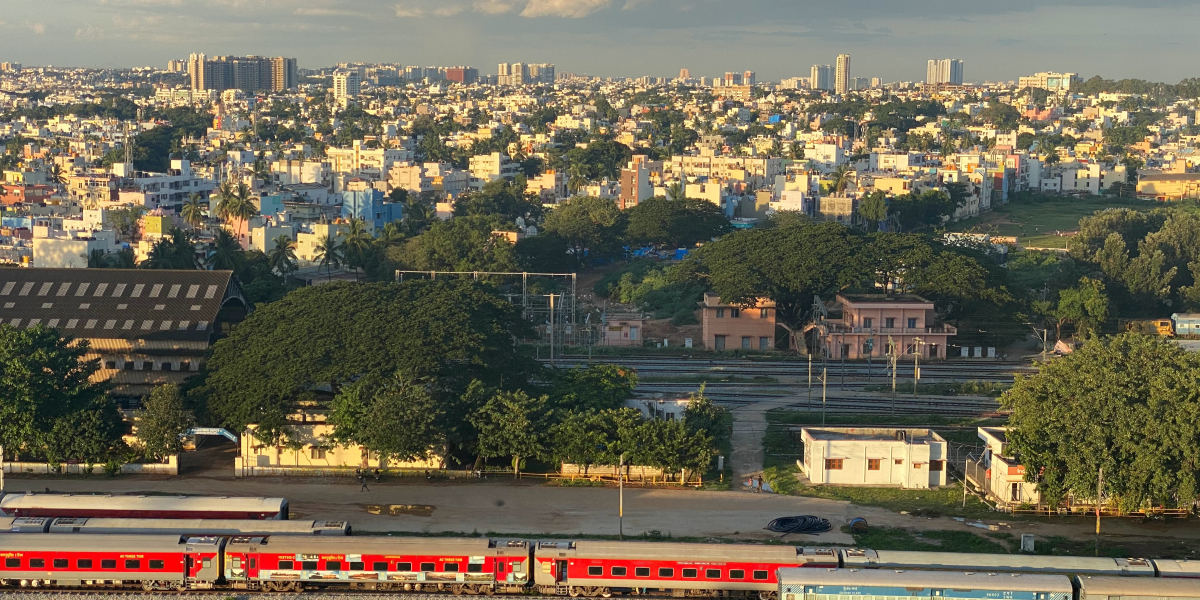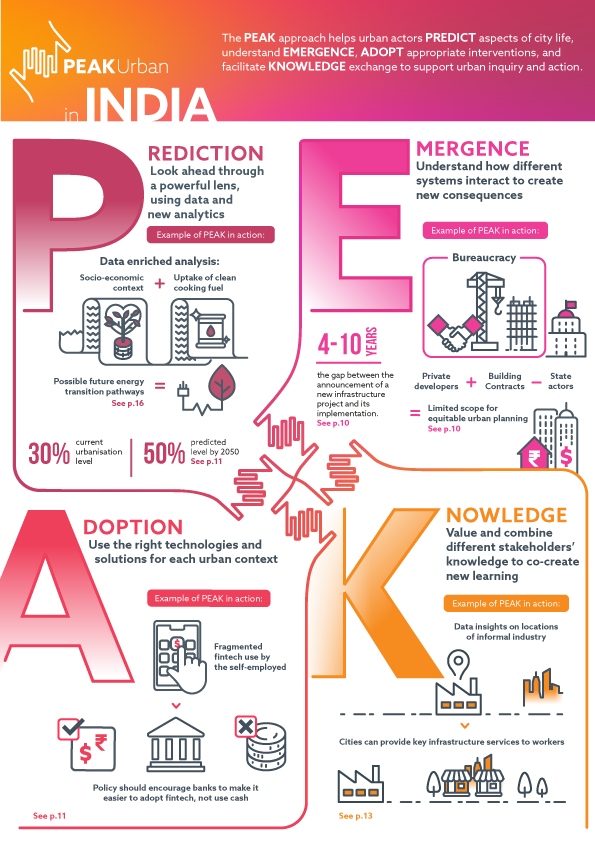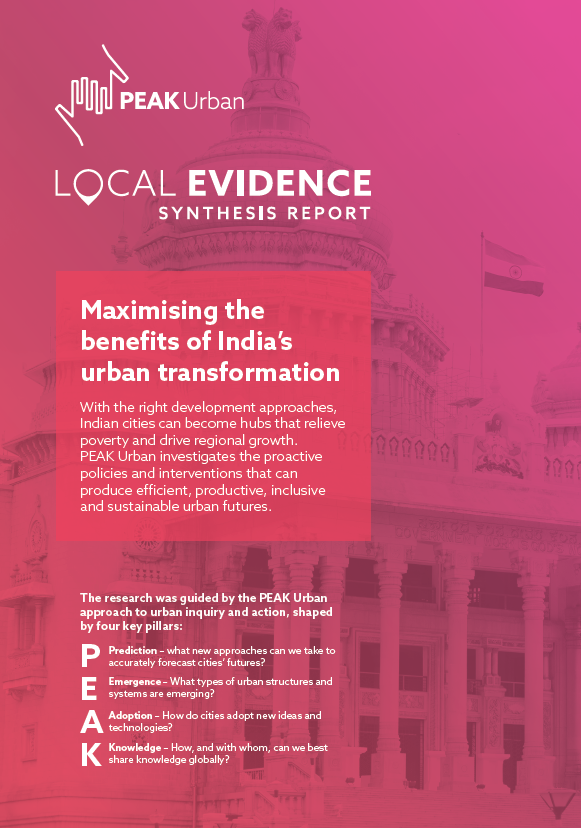
India Country Synthesis Report
With the right development approaches, Indian cities can become hubs that relieve poverty and drive regional growth.
PEAK Urban investigates the proactive policies and interventions that can produce efficient, productive, inclusive and sustainable urban futures.
Apply PEAK insights across scales
While these recommendations and larger questions are located in the context of a specific city, their application transcends the city, and can become signposts towards sustainable urban development, to translate into action items on the policy agenda in different cities, not only across India but across the global South.
Reframe current urban challenges contextually
The PEAK lens illustrates the need for vocabularies around existing urban phenomena such as health, land-based financing and deindustrialisation to be reorientated around new contemporary challenges.
Promote cross-sectoral collaborative exchange
The PEAK framework promotes cross-sectoral collaborations on multiple levels - through holistic partnerships with research institutions spread across both the global North and global South, through new modes of understanding transitions between scales, by engaging with different methodological approaches, and by invigorating traditional modes of knowledge production in order to foster capacity building.
Allow for more cohesive data collection
Policymakers should ensure availability of rich data sources to inform and monitor interventions and their impact.
Recognise the city as an active agent
Cities must become more active agents in planning and implementing their development if they are to deliver a sustainable urban future.
Build local- and city-level government capacity
India needs regionally balanced investment from the local level, in and around existing urban centres, linked settlement systems, economic corridors and emerging urban clusters.
Local and city officials need to understand their vital role in shaping sustainable future cities.
Enable better migration within the global South
To create inclusive and equitable cities of the future, urban actors must identify the obstacles migrants face.
Share learning across the global South
Leveraging South-South learning was an important component of PEAK's research, the Covid-19 pandemic especially highlighted the importance of knowledge-sharing when dealing with communicable disease.
Use the PEAK framework to investigate complex urban issues
The PEAK framework can be used to diagnose barriers and enablers to development at city, regional and national levels (such as social protection, livelihoods, housing shortages and access to utilities) and design area-based solutions. Such programmes should be supported by national, regional and international investment, partnerships and coordination mechanisms.

